The Bumpy Road to Success
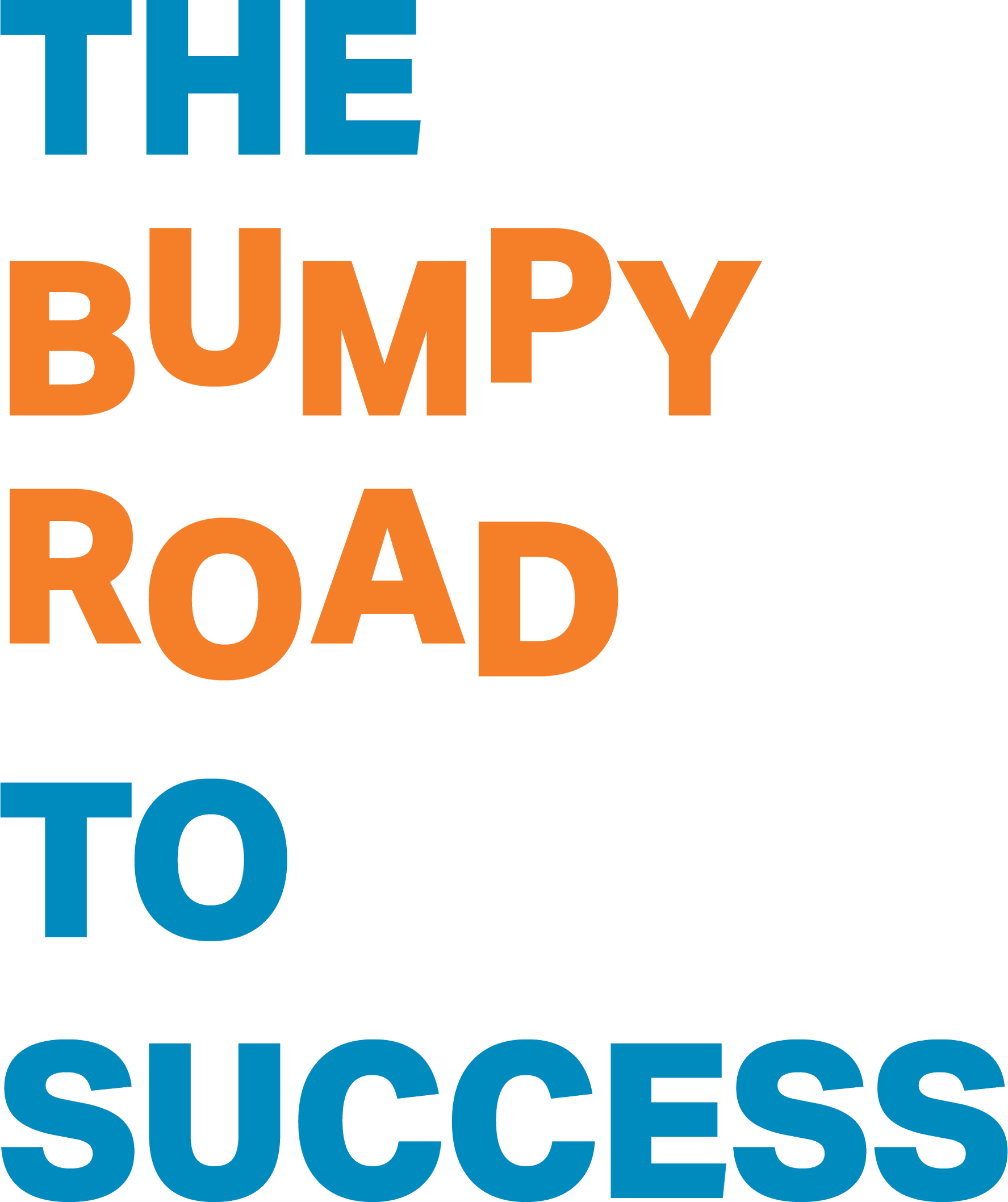
illustrations by nigel buchanan

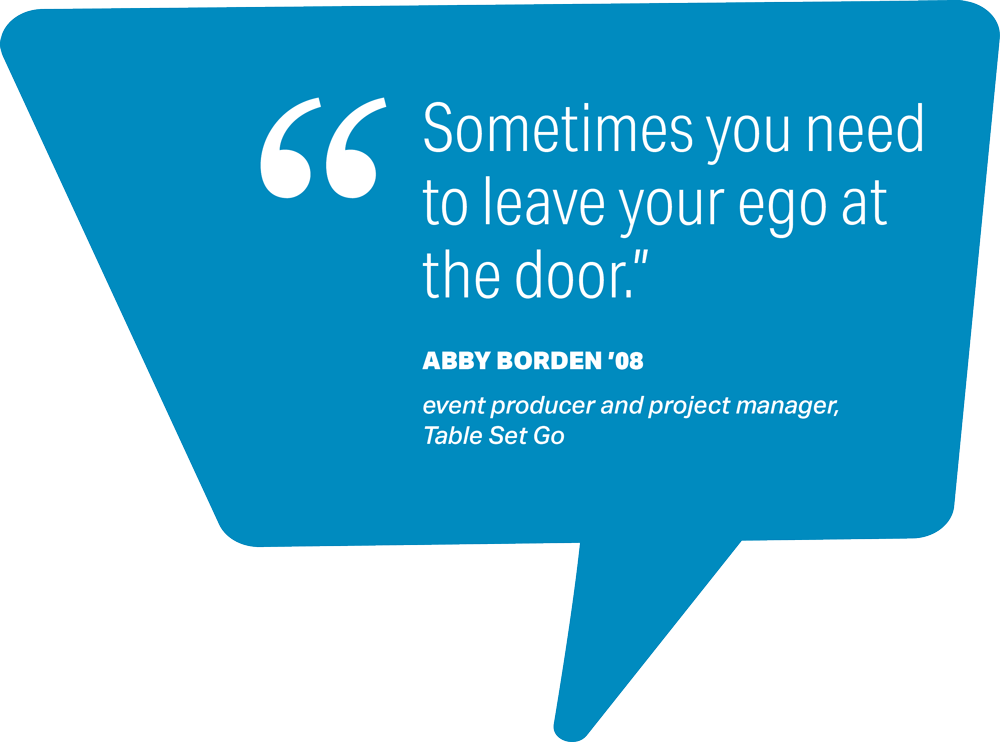
n 2009, I decided to move to Los Angeles shortly after a writers’ strike had shut Hollywood down (sound familiar?), so it was hard to find a job. I reconnected with Chris Bender ’93, a successful Hollywood producer whom I had met on campus my senior year. I shared that I created my own major — arts management — to extinguish the idea of a “starving artist” and instead empower myself as an artist with some business savvy. He offered me an internship at his production company and said, “It’s not glamorous, but it’s a great experience.” He was right. Yes, I got to read movie scripts, but I also answered the phone, picked up lunch, walked dogs and babysat kids — anything anyone asked me to do.
As a senior, you think that by graduating with a degree from a school like Bucknell, you’ll immediately jump into a dynamic career full of upward momentum. In that first job, I learned that sometimes you need to leave your ego at the door. Start from the bottom, pay attention to the details, be thoughtful and listen. Remembering the name of the guy who was “looking for the thing” could get you a promotion!
After that internship, I went on to work at a major agency, then got into events and catering. Chris was right: It’s not all glamorous, but it all led to my clients and the projects I work on now.
Today, I’m an event producer in Los Angeles. I orchestrate major high-profile events with guest lists ranging from 50 to the thousands. My clients include the Elton John AIDS Foundation, Veuve Clicquot, Warner Brothers and the Recording Academy. In my leadership position, it’s important to delegate. But I think it’s just as important to be willing to roll up your sleeves with your team. I’ll bus a table or adjust the display on a bar — not glamorous. But boy, getting to carry out Elton’s 70th birthday cake was! The job does have its perks.

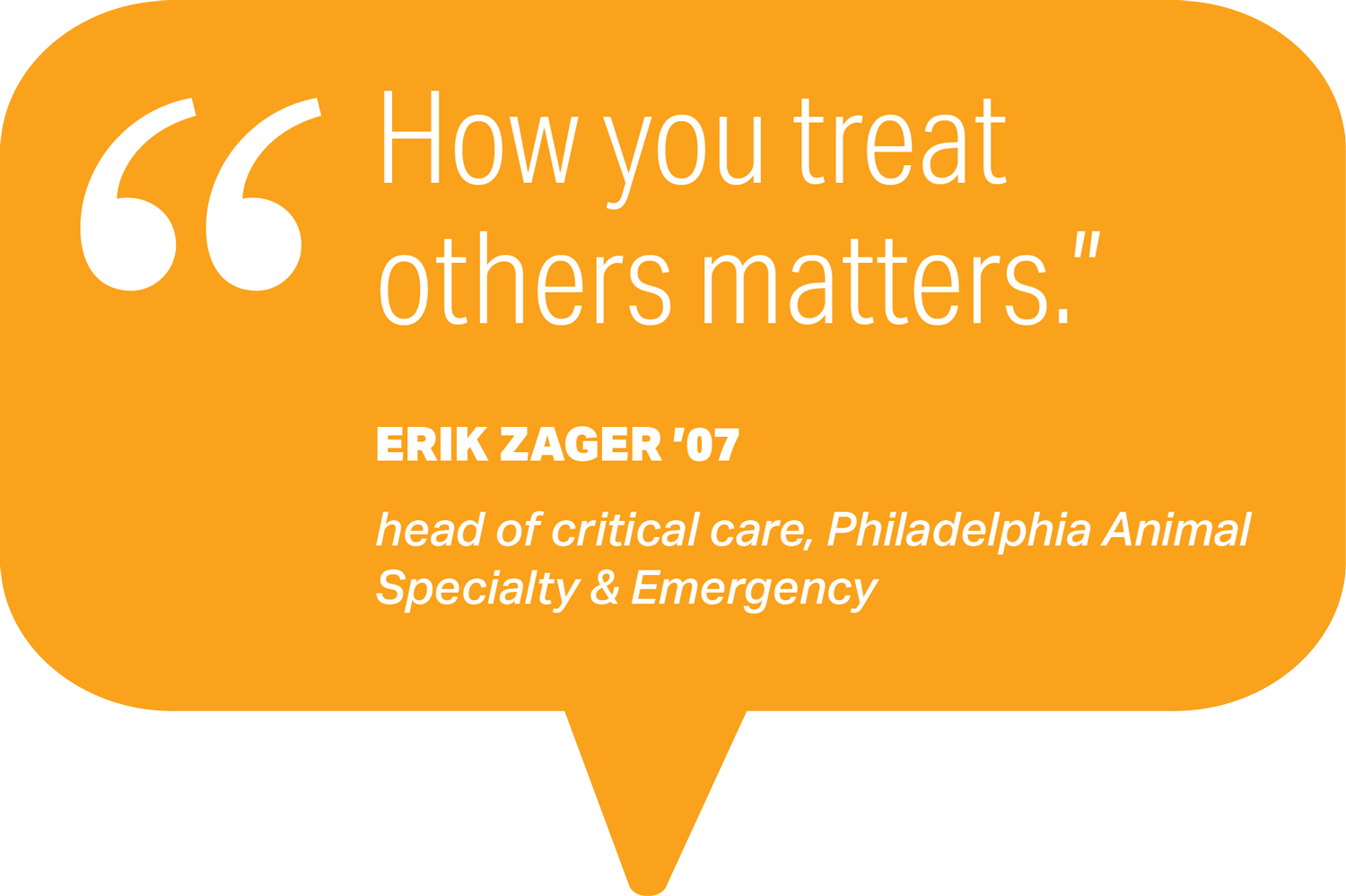
hen I went to veterinary school at Cornell University, I quickly realized it was a different beast than undergrad. I adjusted to the challenges, found a community and eventually felt ready for the next step. But nothing could have prepared me for what I encountered during my residency. I had a very difficult chief of service, who was basically my boss. For three years, she was a force against me, making me question myself and rethink my career goals.
At first, I thought it was just a rocky start, but our relationship never improved. I felt like this person should be teaching and guiding me, but it felt more like she was trying to discourage me and hold me back. Every interaction was a battle. There was never an easy moment. I fought to stay my course and learned how to mentally prepare myself to work with her each day.
While I don’t look back on that period with fondness, I’ve come to realize it taught me a valuable lesson: How you treat others matters. I manage a critical-care veterinary ER. The work is very rewarding, but it can also be very stressful. For people to perform their best in this environment, they need to feel valued, supported and respected. When I see myself engaging in a pattern of behavior that may not be helpful to others, I stop myself, step back and take a moment to reflect. The most important thing we can do is consider the well-being of those around us. In my case, that means caring for animals as well as people.

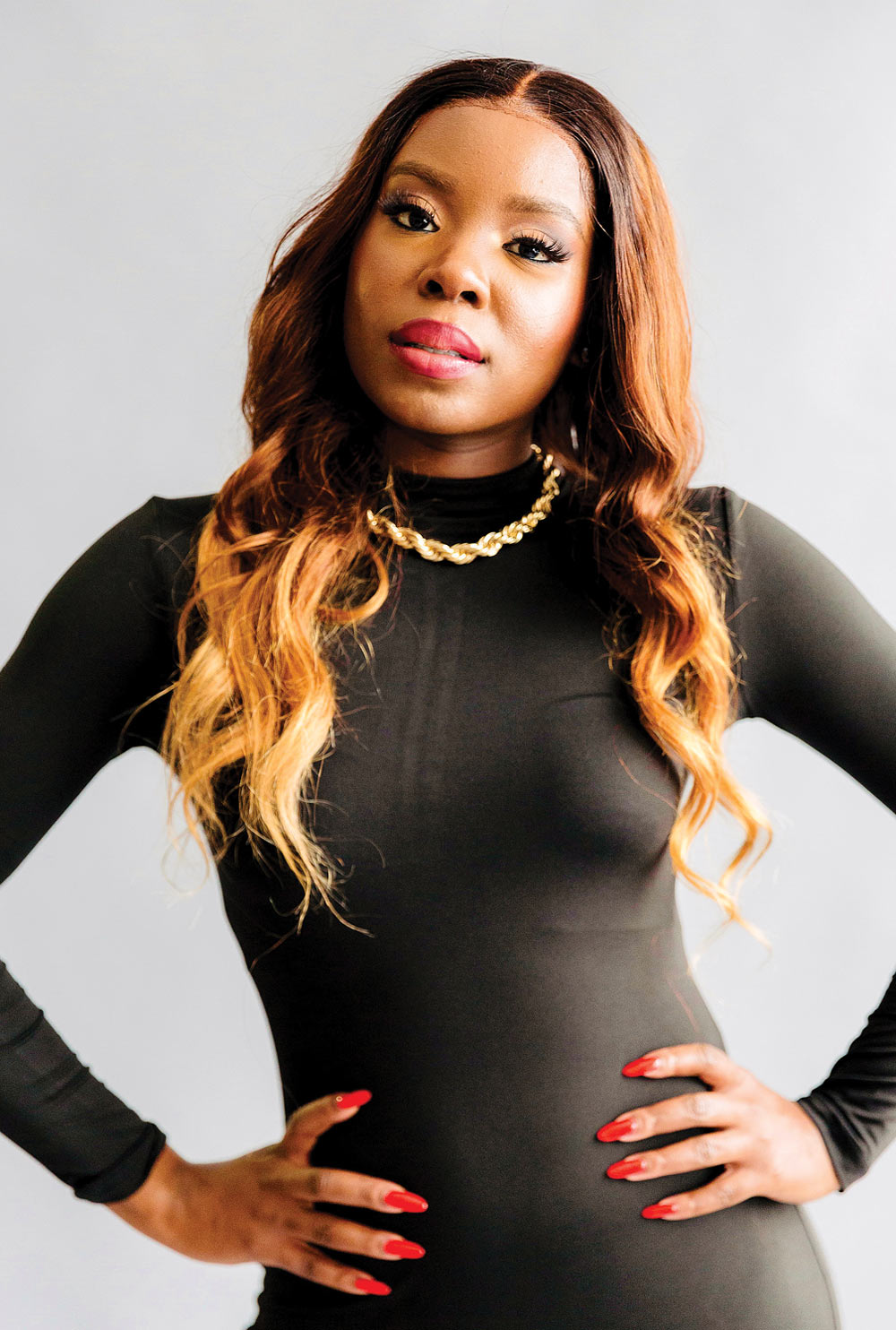


hen I was a student, UBS, a global wealth management firm, came to campus to recruit interns. I didn’t know anything about financial services, but as an economics major, it sounded like an opportunity worth pursuing. Things seemed to fall into place from there: I got the internship, which led to a full-time job offer. I graduated thinking I was on the path to success.
For the division I joined, I needed to pass a securities licensing exam called the Series 7 test. I spent the entire summer studying. After four years of academic rigor at Bucknell, I thought I was ready. But I failed it — twice. It crushed me. I was not prepared for that disappointment.
Instead of retreating into a state of self-shaming, I decided to work my network. I reached out to other people at UBS, including Bucknellians who worked there, and I ended up finding a different opportunity at the firm.
I can see now that failing that test was a blessing in disguise. I moved into a junior role with the private bank division. It was really intense. But I jumped in and hustled, and in the process I gained exposure to more aspects of wealth management than I would’ve in my original role.
As I learned more, I realized I gravitated toward the creative side of the business. I transitioned into a marketing role and developed a whole new skill set. Today, as director of institutional marketing, New York Life Investments, I oversee the integrated marketing programs that elevate our brand and promote our capabilities to institutional investors. I’m currently building our brand in Japan — it’s a new market for us, and it’s really exciting work.
When I reflect back on my career journey, the key for me has been being open to new opportunities and being comfortable with being uncomfortable. Don’t let a setback discourage you or define you.

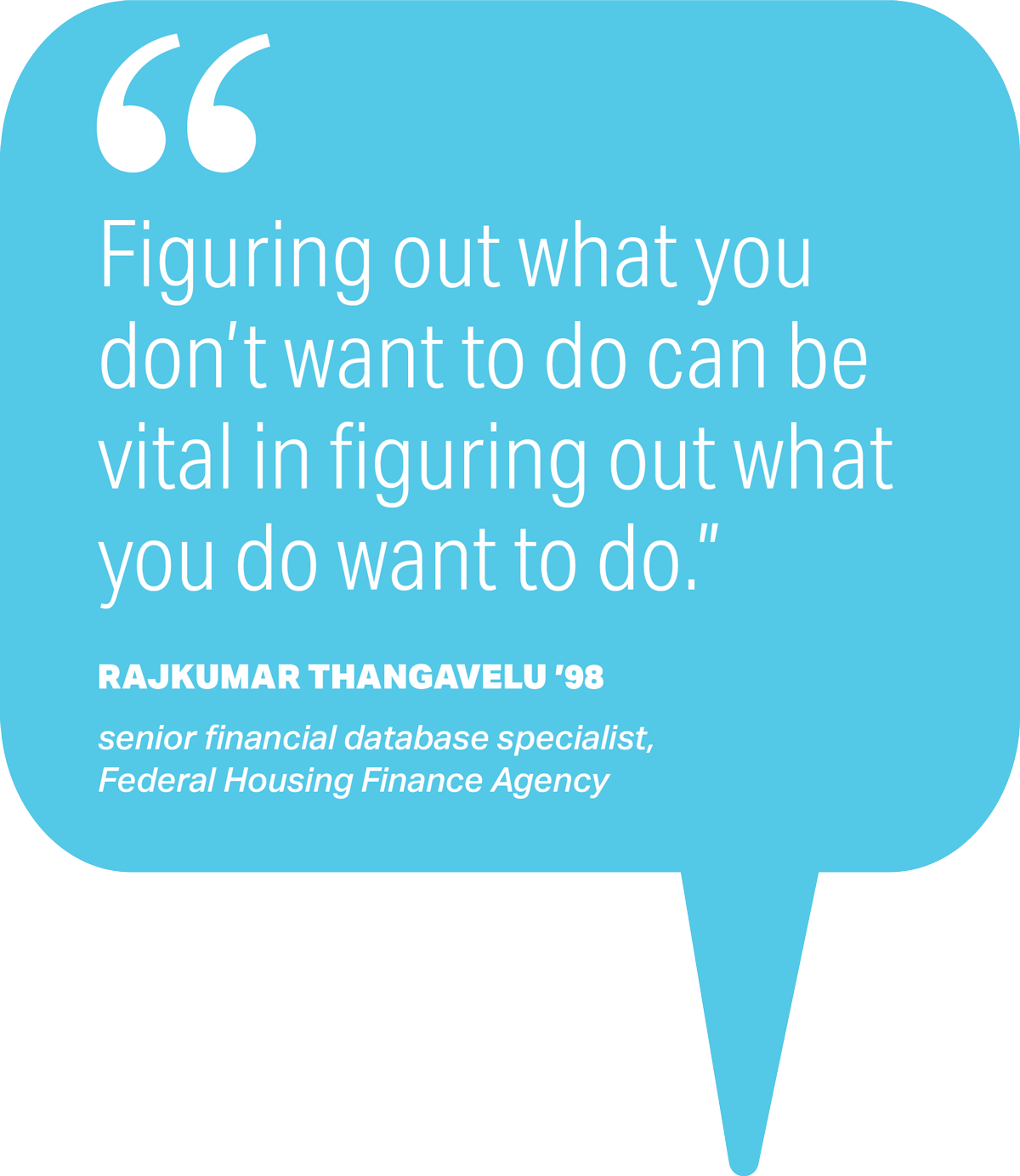
fter graduating from Bucknell, I accepted a job at an insurance agency and quickly realized it was not a good fit. For starters, it was very results oriented. I felt like I always needed to be focused on selling somebody something. It also felt competitive; everyone was driven by their individual performance. At Bucknell, I had always enjoyed collaborating with classmates and working on group projects.
I stuck it out for two years. Even though I got better at my job and adapted to the environment, I knew my heart wasn’t in it and that I belonged elsewhere. I kept thinking about an internship I had working for a labor union in Washington, D.C., that I really enjoyed. That prompted me to look for positions in the federal government. I landed a job as a bank examiner for the Farm Credit Administration in 2003, and I’ve been working for federal government agencies ever since.
Currently, I’m a senior financial database specialist within the Federal Housing Finance Agency. Our mission is to ensure the safety and soundness of the American housing market. Results are still important in what I do, of course, but I am so much happier doing work that is personally meaningful to me. I’m part of a team that shares the goal of providing Americans with affordable housing resources.
I’ve mentored interns in my office and through the Bucknell Public Interest Program who have been embarrassed to admit they didn’t like their work experience. I always tell them it’s OK — more than OK! Figuring out what you don’t want to do can be vital in figuring out what you do want to do. A successful internship doesn’t mean you loved the internship; it means you learned more about yourself and what you want to do in the future. Your first job probably won’t be your dream job, and that is OK.




graduated from Bucknell with a math degree and a collection of art history classes, but I wasn’t ready to stop learning. I enrolled in the art history graduate program at Temple University and spent a semester in France researching the engineering marvels of Gothic cathedrals. My morning trek to the dusty archives always included a stop at the town’s boulangerie. Lured by the aroma of baguettes direct from the oven, I fell in love with food, especially the importance of bread in French culture.
I met a baker who had recently opened his own shop north of Paris. Pierre needed help keeping the mixers and ovens cleaned, and I craved physical activity to balance the sedentary hours digging through manuscripts. Here, I uncovered both the art and science of baking bread.
After I graduated from Temple, I entered the management development program at AT&T. Taking a job with a corporate ladder to climb seemed responsible. I joined a team of decision-makers from ad agencies and TV stations. My job included dining in fancy restaurants, navigating wine lists and utilizing my knowledge of French cuisine.
Eventually, I found myself pulling away from corporate culture. If I was going to be working 14-hour days, I’d rather be somewhere else: in a bakeshop. I reunited with Pierre, and for the next three years, I rotated between six months of training in his boulangerie, then returning to Philly to work in a restaurant long enough to finance my next stint in France. The days were long yet exhilarating.
I continued to grow and learn. When the Restaurant School in Philadelphia invited me to write what became the industry’s first degree-granting program in baking and pastry, my path as a culinary instructor became clear. That took me to the California Culinary Academy and the International Culinary School at the Art Institute of San Francisco. My path is all over the map, but I can see now how it all led me to where I am. Each experience added a piece to the puzzle. Today, I operate my own research and development company for the baking industry. It’s a competitive space and keeps me at the head of the curve of emerging food trends. National manufacturers and startups seek me out to engineer a product to fit their nutritional standards. But for me, it’s more important that the food delivers the highest-quality flavor and texture. It’s both an art and a science, and it feels meant to be.
